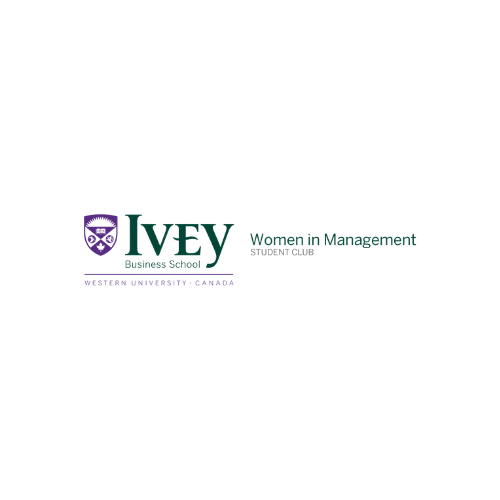HARLEEN ARORA: brand manager, proctor & gamble
For our third episode of “Breaking Into the Industry”, we spoke to Harleen Arora, HBA '20. After interning at Proctor & Gamble, she accepted a full-time role at the firm as a Brand Manager.
What experiences led you to a career in Marketing?
Growing up, I was always interested in a variety of different subjects and could never set my heart on only one. After taking the sciences all throughout high school, I pursued a healthcare internship in second year working for the Mount Sinai Health System in Business Development. Although the internship was very interesting and rewarding, I realized I wanted to give my other passions a chance at Ivey.
As a person, I’m naturally curious about everything around me and wanted to be in an industry where my curiosity and observation skills were valued, and where I would be able to gain a breadth of experience working on different projects. I noticed a couple of industries like marketing and consulting that had that element.
When I got to HBA1, I was introduced to the CPG industry very early on. I had heard great things about P&G through HBA2s and Ivey alumni that I knew. A key driver in pursuing marketing was the networking session P&G held in September of my HBA1 year – I remember being able to comfortably make conversation with a lot of the representatives. The firm seemed like they had a culture that fostered curiosity and innovation.
That led me to applying for P&G’s brand management internship, which I was fortunate to have experienced. After having a great summer with the firm, I decided to sign back for full-time and start my career in marketing.
What do you enjoy most about working in a CPG firm?
At a CPG, you are given a lot of autonomy and responsibility very early on. You are truly the owner of your business(es). Think of it like being an entrepreneur for your brands, but with corporate resources behind you. It's an amazing feeling to see all of your hard work and planning come to life in the stores consumers shop at every day, sometimes only months after you’ve developed a strategy. I think that's what I was looking for early on in my career - being able to channel my curiosity, but also being able to make a tangible influence right from the get-go.
Another P&G-specific perk would be that the firm almost exclusively promotes from within the organization. It’s fascinating to think that the President of P&G Canada started in sales right out of university and has been able to work her way up to where she is today.
What are the most influential factors that helped you break into the industry?
I think there were several factors that helped me land the internship. Networking was definitely important – I reached out to as many people as possible and found out as much as I possibly could about the CPG industry.
Another key element of the recruiting process for me was the online assessments. I was never a natural at them, but I did my due diligence and did as many practice tests as possible to become good at them.
I would also say that prepping well for behavioural interviews in the CPG industry is extremely important since the behavioural is usually the only interaction the company has with candidates before they make their final hiring decision. Making sure you’re well-spoken, structured in your thinking and your answers, and highly personable are all crucial to nailing the interview process.
Did you face any challenges (being a woman, or otherwise) along the way? And in the workplace?
Fortunately, I was welcomed with open arms in both my internship and now as well as a full-time employee. I definitely feel very thankful to be able to work in an inclusive environment where my opinion is valued and heard.
Although I haven’t faced challenges as a woman in the workplace, I’ve definitely faced other challenges along the way. The CPG industry operates in a very specific manner – this includes the lingo used on a daily basis, the different processes put in place by the organization, and the way that communication flows throughout the company. One obstacle I faced early on was that I had to learn all of the above from scratch very quickly to ensure I was able to keep up with business priorities coming my way, and gain credibility early on amongst my peers. Overall, you’re given a lot of autonomy early on, but the trade-off of that is you’re very much expected to be the expert on your business/brands as soon as possible.
Do you have any advice for students interested in marketing?
My advice would be to first figure out why you’re interested in marketing. This will be especially helpful to narrow down your approach when applying to firms. Are you interested in CPGs? Tech? Digital marketing? Marketing strategy? Marketing is a broad term and it can mean different things for different people. Ask yourself what type of work you’d like to do and hopefully that will help you find a firm that fits your criteria and interests. Overall, be as directed as possible in your approach and don’t be afraid to ask questions to industry professionals along the way, to help you figure it out!

